Tag: hvac diploma
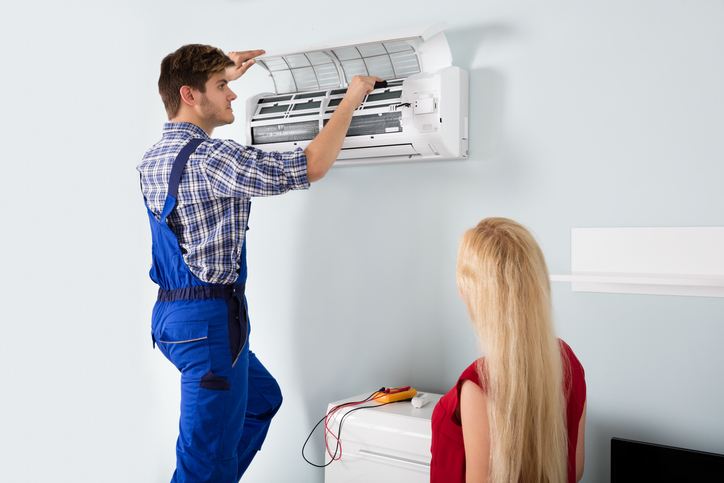
Heating, ventilation and air conditioning is an industry that is gaining popularity. Almost every house today will not only have a central heating system but also a system to control the air quality, humidity and ventilation of a space.
While working in HVAC, it is essential to have good communication skills, especially when engaging with new and existing customers. When it comes to HVAC systems and businesses, clients have many options to choose from. Good communication and customer service are something that all clients care about, so it’s important to offer every customer the best possible experience to secure their business. Read on for some top communications tips when dealing with clients!
1. Answering the Phone Quickly Will Look Professional
Having an open line of communication for your clients to reach you is essential for the steady flow of business. Many customers will call you to get an instant quote on what services you offer, your next availability to service or install an HVAC system, and your prices. In that case, companies need to have someone ready to answer the phone and respond to those queries.
After completing HVAC technician courses, you’ll learn that having reliable customer service is what can truly differentiate your business from others. For example, a client’s A/C may break down in the summer and need to be fixed the next business day. By acting fast when your clients call you about a problem, you can be sure to secure a loyal customer for the future.

2. Make Sure Customers Understand What You Are Saying
Have you ever been somewhere to get a service and the employee keeps using technical terms that you don’t know? This is an example of poor communication skills which can leave the customer feeling lost and confused.
During HVAC school you will receive advanced training in technical procedures relating to gas and propane heating systems and ventilation and air cooling equipment. You will also be taught gas codes & regulations for residential and commercial environments. With this knowledge in the bag, it’ll be your job to break down any problems or procedures to clients in clear and simple terms. That way, you can clarify what services you’ll be performing and leave clients feeling confident in your role as a technician.

3. Focus on Earning Customer Trust After HVAC School
Loyal customers are the most important attributes of any successful business–and HVAC companies are no different. You may be dealing with clients who are stressed or impatient about getting a service done. In these situations, it’s important to listen to the customer’s concerns and offer them the best solution possible.
In some cases, there may be bigger problems with an HVAC system that will take time to be fixed or replaced. In this case, it is important to be upfront with your clients and give them an honest estimation of your services. When delays or issues arise, inform your clients immediately so they are not left in the lurch. With clear and honest communication, your business can enjoy a loyal and satisfied client base.
Are you looking to earn your HVAC diploma?
Check out NATS today!
What Those with HVAC Technician Training Should Know About the Benefits of Preventative Maintenance
September 15, 2020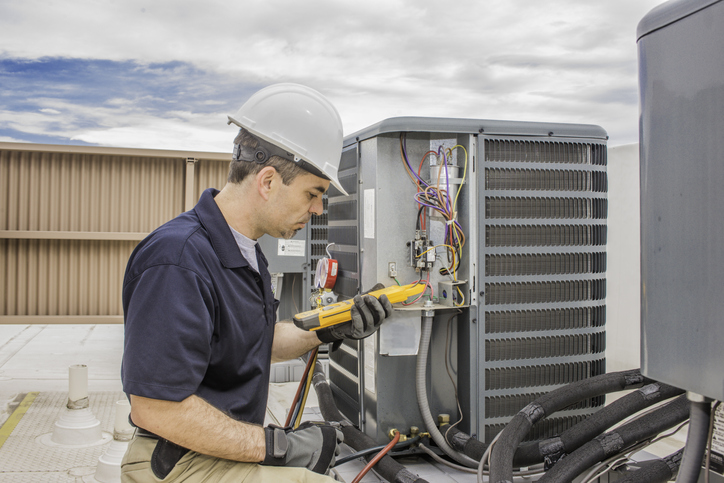 There’s nothing worse than the AC breaking down on a blazing hot day—apart from maybe the heating system fizzling out when it’s a frigid -30 degrees! HVAC technicians become very popular individuals at the height of summer and winter, serving to rescue home and business owners from uncomfortable temperatures by performing emergency repairs as they come up.
There’s nothing worse than the AC breaking down on a blazing hot day—apart from maybe the heating system fizzling out when it’s a frigid -30 degrees! HVAC technicians become very popular individuals at the height of summer and winter, serving to rescue home and business owners from uncomfortable temperatures by performing emergency repairs as they come up.
Keeping HVAC units in good working order through routine checkups is another important role of the technician. Here’s why routine maintenance practices are important for keeping these systems in their best shape all year round!
Routine Maintenance Helps Owners Breathe Easier
Respiratory problems like asthma and bronchitis can often be traced back to the living conditions of the home, with the dirty HVAC unit a prime culprit in many cases. The problem comes from condensation forming in the coils and ducts of the AC unit, which can lead to all kinds of harmful mold and bacteria growth.
Customers who keep to a routine maintenance schedule for their HVAC units are ensuring that all of the harmful contaminants that may have built up inside the system are eliminated. A service technician is responsible for cleaning filters, coils, and other components of the unit on a routine visit, which leads to a cleaner unit, thereby improving air quality.
A Well-Maintained System Can Save the Owner Money
What would a home or business owner care more about than breathing clean air? How about more money in the old pocketbook! If you’re interested in HVAC technician training, you should know that keeping an HVAC system in good working order can help the owner save money by optimizing efficiency to keep energy costs down. A well-maintained HVAC system uses a lot less energy and puts less wear and tear on the machinery of the HVAC unit, running a good 20% more efficiently than a neglected unit.

Regular checkups in the fall and spring can keep efficiency strong, and help an owner get a good ten years out of their HVAC investment. Routine checkups also allow the service tech to catch a small problem needing a quick, inexpensive fix before it turns into a much more complicated problem requiring lots of work—and lots of coin to repair.
Fewer Emergency Breakdowns and More Warranty Opportunities
People run their HVAC systems pretty hard in the summer and winter months, which can lead to breakdowns. These machines are designed to handle the energy levels the owner demands, but only if the unit is being looked after properly. If you’re seeking your HVAC diploma, you should know that breakdown prevention during the hottest and coldest times of the year is reliant on keeping routine maintenance and inspection checks.
By keeping up regular twice-a-year visits, the owner may even be lucky enough to discover that a part that needs work or full replacement is still under warranty. Longer waiting times between visits reduce the opportunity to spot a problem before a warranty period has reached its expiration date.
What Are Some Maintenance Tasks Those Attending HVAC School Should Know About?
There are a few things to watch out for during routine maintenance checks. On heating systems, the tech will need to check: fuel lines and power sources, inspect combustion chambers, inspect the heat exchanger for cracks or other evidence of damage, as well as check for carbon monoxide leaks.
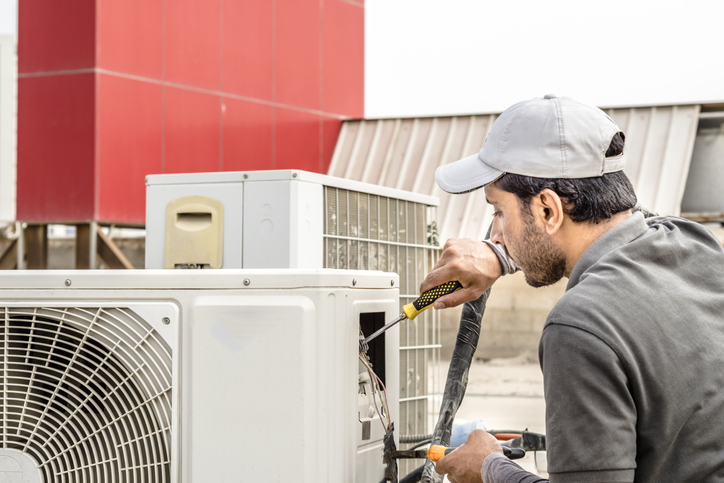
On cooling systems, the tech needs to take a look at the fans and blowers, thermostat, system controls, ductwork systems, evaporator and condenser coils, and condensate drains to ensure everything is clean, undamaged, and functioning properly. Additionally, fans and motors must be lubricated, and refrigerant levels must be filled.
All of these tasks need to be performed at regular intervals to ensure that systems keep running properly.
Are you interested in training at HVAC school?
Contact North American Trade Schools today to learn more!

Since heat pumps are such a common tool in the heating, ventilation, and air conditioning (HVAC) industry, aspiring technicians should expect to become very familiar with them throughout their education and future career. Read on for an introduction to heat pumps to get you warmed up!
Learn How Heat Pumps Work With an HVAC Diploma
Heat pumps are not a new technology. In fact, the first heat pump was invented in 1948 by Robert C. Webber. Since then, the technology has been developed to resemble the air conditioning and heating units we have in our homes and offices today. HVAC technician courses will give you the opportunity to learn hands-on how this technology works.
Heat pumps can provide both heating and cooling services. In heating mode, heat is absorbed from outside by the condenser coil and transferred to the interior space via air vents. Even on cold winter days, heat pumps are able to collect warm air from outside. However, if there’s not enough warm air outside, heat pumps can use electric energy or an additional gas furnace to provide extra heat.

In air conditioning mode, the cycle is reversed. Warm air inside the house is pulled into the system with a motorized fan and transferred outside, usually behind or underneath the condenser coil. Cool and dehumidified air then enters the home through the air vents.
Heat Pumps are Energy Efficient
Eco-conscious homeowners will be relieved to discover that heat pumps are incredibly energy efficient. As you will learn in HVAC technician training, heat pumps generate 4 units of thermal energy per 1 unit of electricity used – that’s an efficiency rating of 400%!
In contrast, electrical heaters are 100% efficient, meaning that they generate 1 unit of thermal energy for every 1 unit of electricity. As well as this, heat pumps generate zero emissions, so are a great option for people that want to warm or cool their homes without damaging the planet.
Air Source vs. Ground Source Heat Pumps
As an HVAC technician, you will need to know about two main types of heat pumps: air source and ground source. Air source heat pumps are the most common type and absorb or reject heat from the outdoor air.
As the name suggests, ground source heat pumps get heat from the ground or from water. These are sometimes referred to as geothermal heat pumps and are actually slightly more efficient than air source systems. However, they are more expensive and complicated to install as the systems will need to be built into the soil around a home.
What are the Main Heat Pump Parts?
Air source and ground source heat pumps are made up of a number of components. These include:
- Compressor– to move the refrigerant through the system
- Control board – to control whether the system is in cooling or heating mode
- Condenser coil – to transfer heat outside in cooling mode
- Evaporator coil–to transfer heat inside in heating mode
- Refrigerant – a chemical substance that moves heat through the system
- Thermostat – to choose the desired temperature
Are you interested in a HVAC diploma?
Contact North American Trade Schools to find out more!
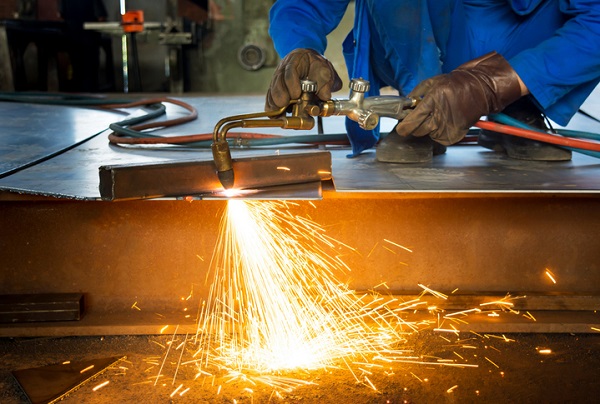
Acetylene torches are to HVAC (heating, ventilation, and air conditioning) technicians what calculators are to mathematicians: an essential tool with many uses. Providing one of the most powerful methods of welding and cutting metals, this tool is widely used in the industry to fix leaks and solder line sets.
But like any gas-powered tool, if you want to use it properly, there are a few key things you’ll need to know and some safety regulations you’ll need to follow. Read on to learn all about acetylene torches and the role they will play in your HVAC career.
What is Acetylene & How Can You Use it?
As one would expect, the basis of an acetylene torch is the hydrocarbon compound called Acetylene. What you may not know is that this element can get really, really hot. In fact, acetylene produces the third hottest chemical flame, and can reach an astounding 3,300 degrees Celsius when mixed with oxygen.
Acetylene is a highly unstable compound. However, once you combine it with another chemical, you can use acetylene safely and easily while still benefiting from its thermal capabilities. Oxygen is the substance most commonly combined with acetylene – but it’s important to note that the term “acetylene torch” can also be used to describe any type of oxy-fuel torch where other gases such as propane and propylene are used.
Regardless of which chemicals are involved, the two gases are present in two separate gas tanks, which are connected to the torch by two metal hoses. The flame is produced when these two gases are passed through the hoses and combined. When this flame contacts metal, it produces a chemical reaction that initiates a process known as oxyfuel cutting.
Acetylene Torch Safety Regulations
As with any power tool, it’s important to know how to safely handle an acetylene torch before you put it to use. One advantage of HVAC school is learning the safest ways to handle the equipment you’ll encounter in your career. Graduates of North American Trade Schools will learn the safety regulations and precautions they need to take to operate an acetylene torch.

One procedure you will need to learn is how to check your acetylene torch before using it to make sure it’s functioning properly. Firstly, you should check that the torch is closed, and ensure that the pressure adjustment screws are blacked out. Then you can separately open the gas cylinder valves and adjust the regulator p/a screws to change the pressure settings. Next, you can open and close valves separately and make any other changes to the pressure settings on the regulators.
HVAC Technician Training 101: Using an Acetylene Torch
HVAC technician training will allow you to learn how to use these power tools through a hands-on approach, but it’s good practice to know a bit about the steps in using them before you begin your studies.
To use an acetylene torch, you’ll first have to light it by purging the oxygen and fuel gas lines – separately – and opening the fuel gas valve slightly. Next, using a striker, ignite the flame. You can then adjust the gas flow to make the flame form a sharp tip. Now your acetylene torch is ready to use.

Once you’re finished with the torch, you can shut it down by closing the oxygen and fuel gas torch valves. If you don’t plan on using the torch for a while, make sure that all the regulator gauges read zero.
Want to earn your HVAC diploma?
Contact North American Trade Schools for more information!

HVAC technicians are required to have a complex skill set to address different tasks. Every day might provide different challenges, from identifying maintenance risks to diagnosing electrical and mechanical faults to cleaning a system or doing warranty service. Whether you work in a commercial or residential setting, customer service skills also play a big role in your success.
Skilled trades people trained in HVAC are in demand and many employers stress the importance of customer service skills. While it helps if you already have some experience with customers, these so-called soft skills can be learned. With practice and guidance, you will quickly see the variety of reasons these skills are important. Here are a few ideas to get you started.
Short Term Comfort Guarantees Long Term Comfort
If you work in a residential setting you know, of course, that you’re working in someone’s house. Ultimately, you are contributing to their overall comfort of their home. Installing or maintaining an air-conditioner when it’s hot or making sure a furnace runs all winter is the main job in making people feel comfortable. However, the customer’s comfort while you’re actually in their home is just as important.

An experienced technician who has already had a long HVAC career will say that being friendly and communicative means that they get called back. A customer that feels at ease while you work is also more likely to recommend you to others, which will only help you in the long run.
Customer Trust Adds Value to HVAC Training
There are a number of ways in which you can build trust with a customer after your HVAC training. For example, it can be helpful to explain the work you are doing, give updates, and leave room for customers to ask questions. These types of exchanges add value to your work because a customer will have a better understanding of your job and see that you know what you’re talking about.
When you break down what you do in everyday language and recommend preventative maintenance it also demonstrates to a customer that your goal is to have a system that will not need extra, costly repairs. Of course, if their system does need more attention in the future, they will have confidence that your return will be worth it.
Sensitivity Gives Everyone Options
While there is a lot of joy involved in installing, repairing and maintaining the systems that people rely on every day, you sometimes have to deliver bad news. When you go out on a call because a furnace doesn’t seem to be working or the AC has stopped, your job may be to tell people they must do an expensive repair or replacement. The way a technician delivers this news must be sensitive to the situation and show understanding.

Again, communication skills come into play. Whatever the situation might be, it is important that you be able to explain a customer’s options clearly. Sensitivity to different levels of technical understanding as well as sensitivity to financial impact will keep you and your HVAC business as an option for more customers in the future.
Want to start your career?
North American Trade School has the courses for your HVAC diploma!
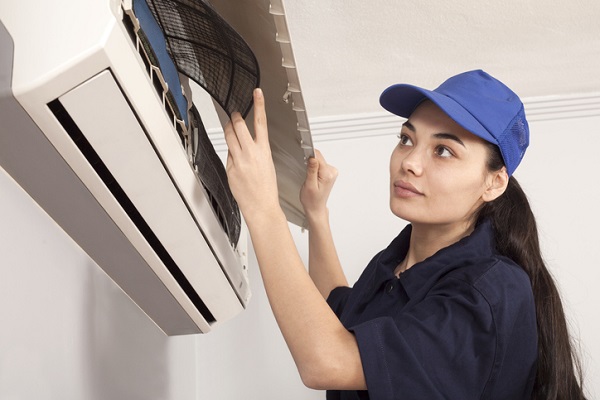
In HVAC training you will learn about fasteners, tools, codes and regulations as well as other knowledge and skills that are required for the job. However, one skill that you should not overlook is time management. If you’re looking to break into the HVAC industry, managing your time effectively can help you succeed.
Time management skills allow you to stay on track and are the best way to prepare for unexpected circumstances. Managing your time effectively also keeps you calm and reduces your stress, so that you are able to work in a focused, effective manner. Read on for more about why time management will matter in your career in the HVAC industry!
Your HVAC Career Will Be Full of Surprises
A major benefit of managing time effectively is that it helps you account for unexpected emergencies, calls and problems. In a job where you are servicing equipment and appliances, you may be called in for an issue and arrive only to discover that the problem is larger than you originally assumed it would be. This adds time to your task and delays the rest of your schedule.
If you’ve organized your day to allow for last-minute changes or service calls that run longer than expected, you’ve given yourself plenty of extra time so that you can still complete your day’s schedule. That way, if you find yourself in a situation where you need to pick up a part or change your strategy, you’ll have enough wiggle room to do so.
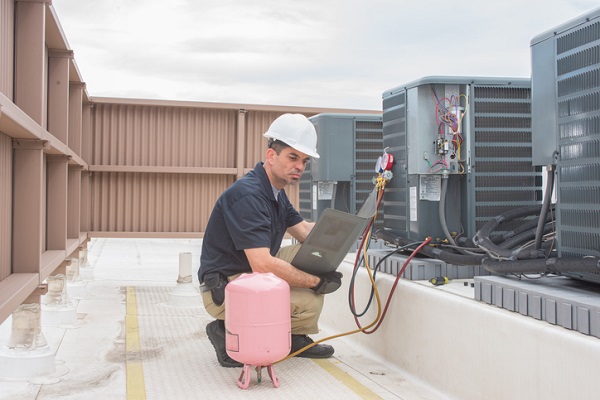
Time Management Helps You Save on Travel
When you are working in an HVAC career, throughout your day you may be required to travel to multiple locations that are quite dispersed. The more time you spend on the road, the less you can get done. This may cause your schedule to run behind or may not be an economical use of resources such as fuel. If you’re working with a team, failing to coordinate locations can cause unnecessary travel amongst employees.
Learning how to plan days in a way that makes sense for travel helps you manage your schedule. Establishing the most direct routes between locations is also helpful to save on time and costs, while ensuring that all of your goals for the day are accomplished.
Time Management Keeps Your Stress Levels Down After HVAC College
When tasks go unfinished or jobs are rushed, the quality of your work isn’t something you are likely to be proud of. This can cause your stress levels to rise and reduce your job satisfaction. After you have your HVAC diploma, you will want to show your skills and knowledge and perform to the best of your abilities. Making sure you have enough time and planning to finish what you’ve started helps you stay focused and healthy for a long and rewarding career. This also keeps you from constantly feeling time pressure or fearing that you won’t finish your work, which is another major stressor.
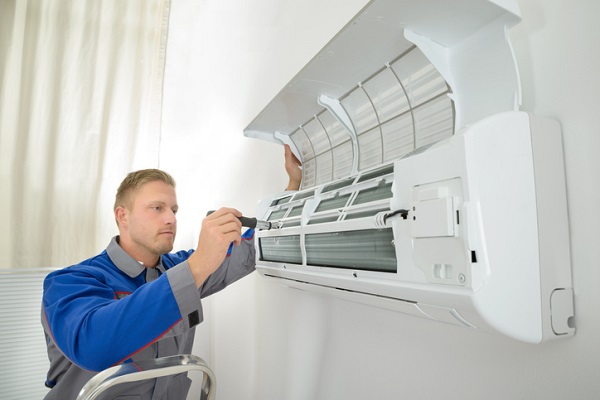
Scheduling extra blocks in your schedule allows you to thoroughly inspect situations and consider solutions, rather than applying quick fixes that won’t last as long. Not only will this help you stay focused and calm, it will make you a more successful professional because your work will be top-notch.
Are you interested in studying at HVAC college?
Contact North American Trade Schools to find out more!





